The significance of proper nutrition during your baby’s first year of life is something that will have a lasting impact for the rest of his life. It is of the utmost importance and cannot be stressed enough. It is during this critical period, when a tremendous amount of growth and development occurs, in particular, brain development and physical growth.
Breast milk is best
How can you ensure that you are providing him with the right nutrition? Firstly, the best thing to do is to ensure that your baby is exclusively breastfed for the first six months and to continue breastfeeding him until he is at least two years old.
This is reflected in recommendations from both the World Health Organization (WHO) and the Malaysian Dietary Guidelines for Children and Adolescents. Both recommend exclusive breastfeeding is practised from birth until six months of age and, for mothers to continue doing so until baby is two years old.
Since lactating mothers have similar nutritional needs as a pregnant woman, the breastfeeding woman will still need to maintain a healthy diet, similar to that of a pregnant woman’s. After all, baby relies on the mother to provide the necessary nutrients to help him grow.
Bear in mind that breast milk production can be affected by your diet, so continue eating a nutritious and balanced diet (just like those recommended for pregnant women) as the nutrients gained from the mother’s diet are critical in ensuring that baby receives sufficient, high quality breast milk and that the mother’s health is not jeopardised. Avoid taking beverages with caffeine or alcohol before breastfeeding as these substances can make it into breast milk.
Take note that for the first six months of your baby’s life, he does not need any other food or water. Breast milk is nutritionally complete and has all the essential nutrients and antibodies he needs. It is naturally rich in essential fatty acids, which in turn help produce the crucial components for his physical and mental development. It also contains antibodies to help him fight infections and diarrhoea. Breastfeeding is also a wonderful way to strengthen the bond between mum and baby.
Start complementary feeding on time!
To prevent the risk of nutrient deficiencies (e.g. iron, calories and protein), you will need to increase your baby’s intake of some nutrients by the time he is six months old. This is because breast milk on its own does not contain enough nutrients for his growing nutritional needs. You will have to start providing him with timely complementary feeding.
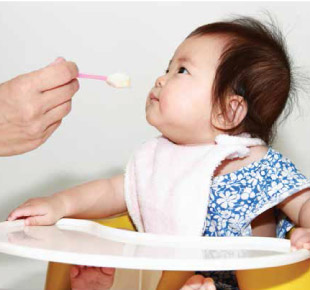
Complementary feeding should be started both on time (at six months and not earlier/later) and given in adequate amounts, frequency and consistency to prevent over- or under-nutrition. Complementary foods should cater for:
- one third of baby’s daily energy needs when he is six to eight months
- half when he is nine to twelve months
- over 60% once he is older. Breastfeeding must be continued even during this time.
Do ensure that you provide him with nutritious foods that provide sufficient energy and nutrients such as protein (meat, fish, eggs, or legumes), iron (red meat, liver, prune juice, or dark green leafy vegetables), zinc (cooked oysters, chicken, beef, or legumes), calcium (milk and other dairy products, or beans, salmon, soybeans, tempeh, and tofu), vitamin A (dairy products, liver, eggs, carrots, pumpkins, or papaya), vitamin C (orange, papaya, tomato, or guava), and folate (dark green leafy vegetables, peas, or orange).
When you start complementary feeding, ensure that the types of food, its texture and consistency are appropriate to his stage of development. Do feed him enough food to meet his energy needs, and make sure you change the food texture and preparation methods to suit him as he grows. For instance, the texture and consistency of complementary foods should allow him to eat it easily without choking. The frequency with which you feed him should also be gradually increased as he grows. It is important that you follow the basic rules of Balance, Moderation, and Variety (BMV) – this helps ensure that you meet your child’s nutritional needs.
Did you know?
BMV refers to a balanced diet which encompasses foods from all five food groups in the Malaysian Food Pyramid. It comprises moderate portions that are served in accordance with the recommended number of servings per food group, and consists of a wide variety of foods to meet all your baby’s nutritional needs.
Keep track of baby’s growth
The simplest and most effective method to determine if your baby is getting enough nutrition and growing properly is to regularly measure his height and weight. Frequent monitoring is crucial especially from birth to 12 months, as this is the time when babies experience the most growth. Consult your baby’s paediatrician to ensure he is growing right and observe his growth carefully.
The growth charts below are divided according to weight-for-age and length-for-age. Do note that you will need to refer to the appropriate chart for boys and girls.
As parents, you will be faced with many challenges in safely bringing up a healthy child. Don’t be overly worried if there is an overwhelming amount of information to process, it’s all part of being a parent. Remember that if you are ever in doubt, you can always talk to your baby’s paediatrician for advice.
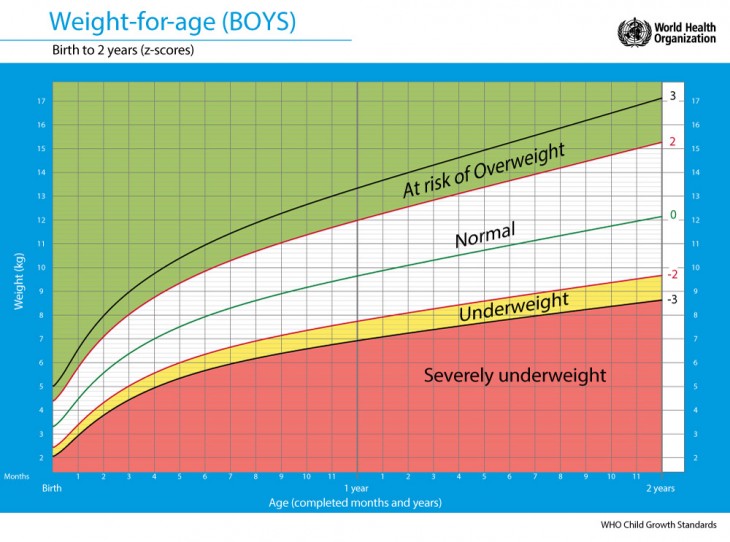
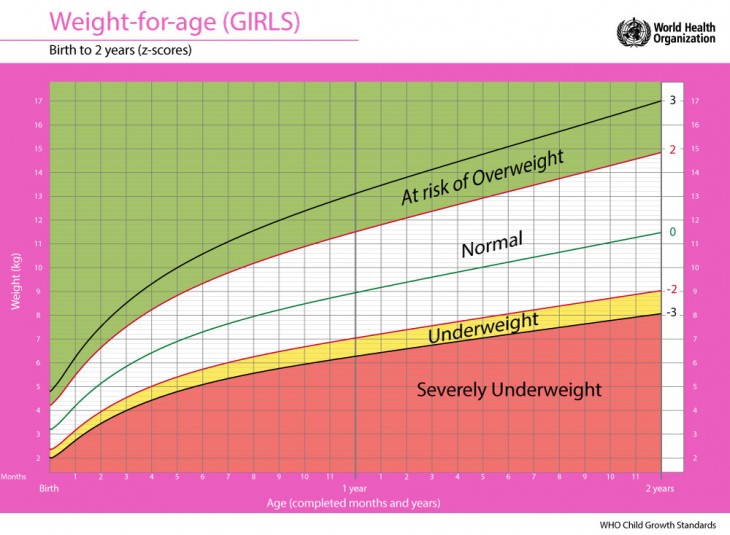
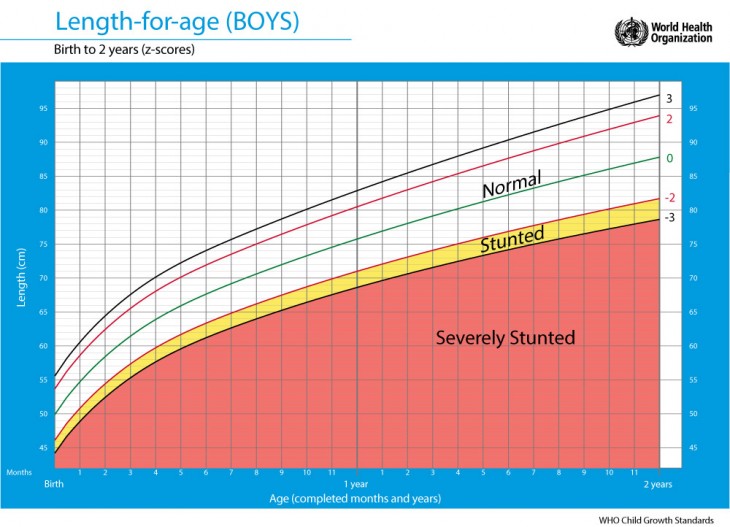
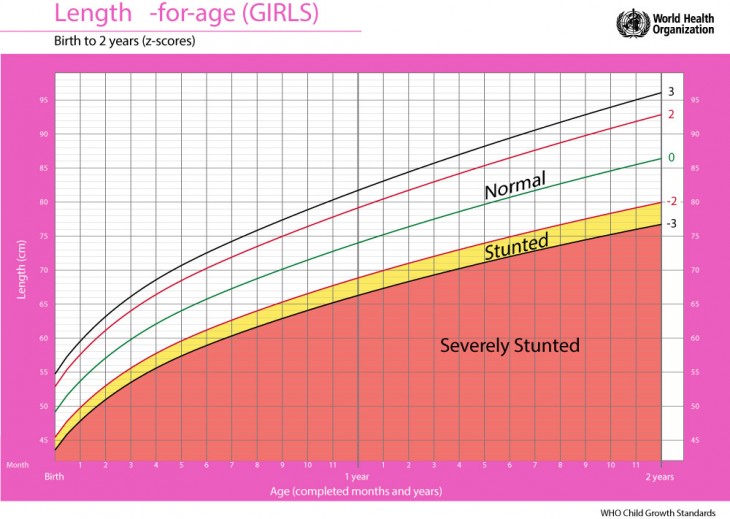







Comments